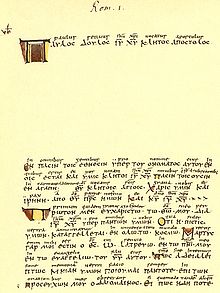
Back Non liquet German Non liquet Spanish خلأ قانونی Persian Non liquet French לאקונה HE Non liquet ID Non liquet Italian Non liquet Lithuanian Non liquet Polish Non liquet Portuguese

In law, a non liquet (commonly known as "lacuna in the law") is any situation for which there is no applicable law. Non liquet translates into English from the Latin as "it is not clear".[1] According to Cicero, the term was applied during the Roman Republic to a verdict of "not proven" if the guilt or innocence of the accused was "not clear".[2] Strictly, a finding of non liquet could result in a decision that the matter will always remain non-justiciable, but a lacuna denotes within that concept a lacking and so that the matter should in future be governed by law.
Loopholes are a subset of lacunae.
A lacuna is any specific matter about which no law exists, but a body of public, judicial or academic opinion believes it should exist to address a particular issue (often described as "unregulated" or "wholly inadequately regulated" activities or areas). A loophole where properly defined, by contrast, denotes that a set of laws addressing a certain issue exists but can be circumvented (or is being exploited) because of a technical defect in the law.
- ^ Black's Law Dictionary (8th ed. 2004)
- ^ See Charton T. Lewis, A Latin Dictionary, liqueo[1] and Cic. Clu. 18.76. Deinde homines sapientes et ex vetere illa disciplina iudiciorum, qui neque absolvere hominem nocentissimum possent, neque eum de quo esset orta suspicio pecunia oppugnatum, re illa incognita, primo condemnare vellent, non liquere dixerunt.[2]
© MMXXIII Rich X Search. We shall prevail. All rights reserved. Rich X Search